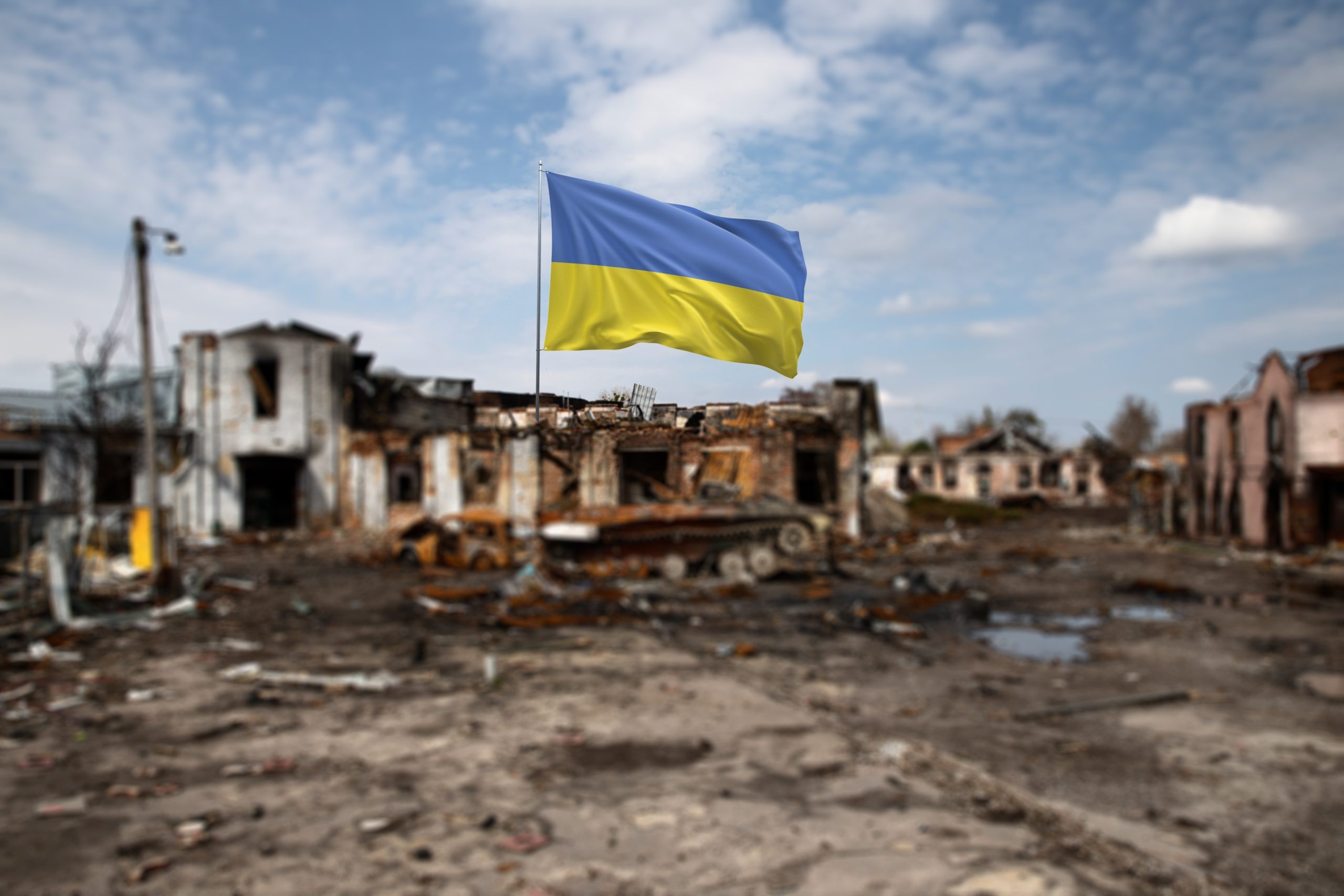Resilience, Hybrid Warfare, and the Future of Security: Lessons from Ukraine
In this episode of The International Risk Podcast, host Dominic Bowen joins live from Kyiv in conversation with one of our international relations specialists to examine how hybrid warfare, authoritarian cooperation, and civilian resilience are reshaping Europe’s security landscape. Speaking from Ukraine as the country endures its most intense wave of drone and missile attacks since the full-scale invasion began, Dominic offers an unflinching look at daily life under siege and the wider lessons for Europe and the world.
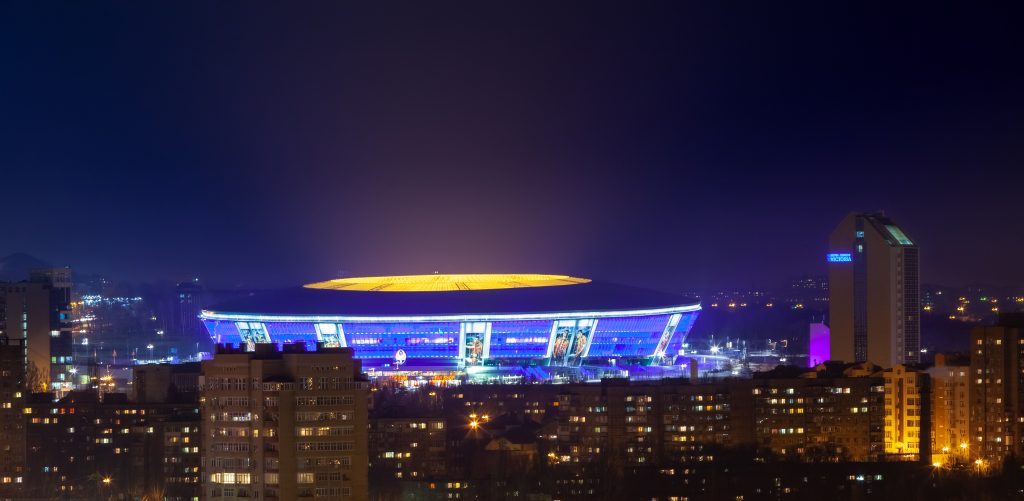
Everyday Life in a City Under Fire
“There were six young boys, soldiers, that had been killed on the front line,” Dominic recounts. “They were being brought to church and their families were celebrating their lives, and then everyone got down on their knees as they carried the coffins into the church. And that’s everyday life. That’s just another morning in Kyiv.”
For those living in Ukraine, resilience has become a daily ritual. Nights are spent in underground bunkers, sleep is interrupted by air raid sirens, and yet the rhythm of civilian life continues. “We’re staying at a nice hotel, which we need to because of the security situation,” Dominic explains. “It’s got the underground bunkers that invariably we sleep in most nights because of the air raid attacks.”
He describes Kyiv’s residents facing repeated alarms through the night. “The first one normally goes off not long after you go to sleep, so around midnight. Then about two or three, the second wave comes. If you live here, this is your life. It’s a really different situation.”
Everyday moments of humanity punctuate this constant danger. “Ukraine did nothing wrong,” he says. “And this is what the civilians are dealing with every single day.”
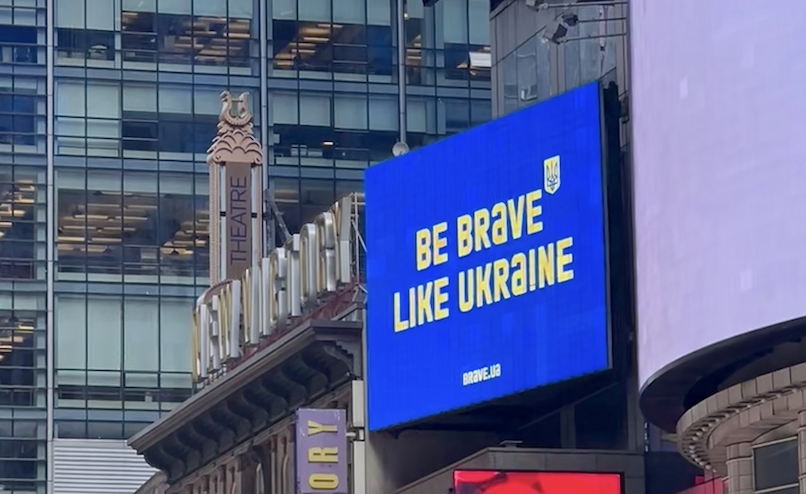
Strength in the Midst of Destruction
“I think the one thing that I love about humans, whether it’s in Yemen, Iraq, Syria, Haiti, or Sudan, is just this level of resilience, even when humans are suffering,” Dominic tells Katerina. “That level of resilience is just so inspiring. People often say to me, I’ve had a career of working and living in war zones, and people always say, oh, that must be really tough. The answer is no. I always come back so motivated and so inspired. And that’s the case here.”
Even amid the largest drone and missile attacks in history, Dominic describes Kyiv and Lviv as vibrant and modern cities. “You need to picture the coolest parts of London or Stockholm or Sydney and then increase it by a little bit,” he says. “You see the youth before the curfew kicks in, out on the street. There’s great art, museums are opening, and the music and artwork are so expressive. The resilience here is just absolutely phenomenal.”
The Authoritarian Alignment
Katerina turns the discussion to geopolitics, asking how growing cooperation between Russia, China, Iran, and North Korea is reshaping the European security landscape. Dominic’s response is unequivocal.
“There is an increasingly coherent and authoritarian alignment,” he explains. “We’ve got countries like Russia, China with its economy and its tech, Iran with its missile and drone programme, and North Korea with its munitions and missiles. Then you’ve got countries like South Africa and India that are funding these regimes. And this is really reshaping Europe’s security environment and it’s directly degrading Ukraine’s resilience.”
Russia’s capacity to wage war, Dominic says, depends on this network. “Russia and China’s trade hit a record high of 244 billion dollars, and that level of bilateral trade is what’s making this sanctions resilience possible. The DPRK has been shipping large quantities of munitions, and some of the ballistic missiles that struck Kyiv last night are identified as North Korean variants.”
The dynamic is wider than Ukraine. “As we’re seeing BRICS and BRICS Plus expanded to Iran, the United Arab Emirates, Saudi Arabia, Egypt, Ethiopia, and Belarus, this isn’t just economics. It’s normalising anti-Western coordination and creating an environment where Russia can sustain its attacks against not just Ukraine, but also Europe.”
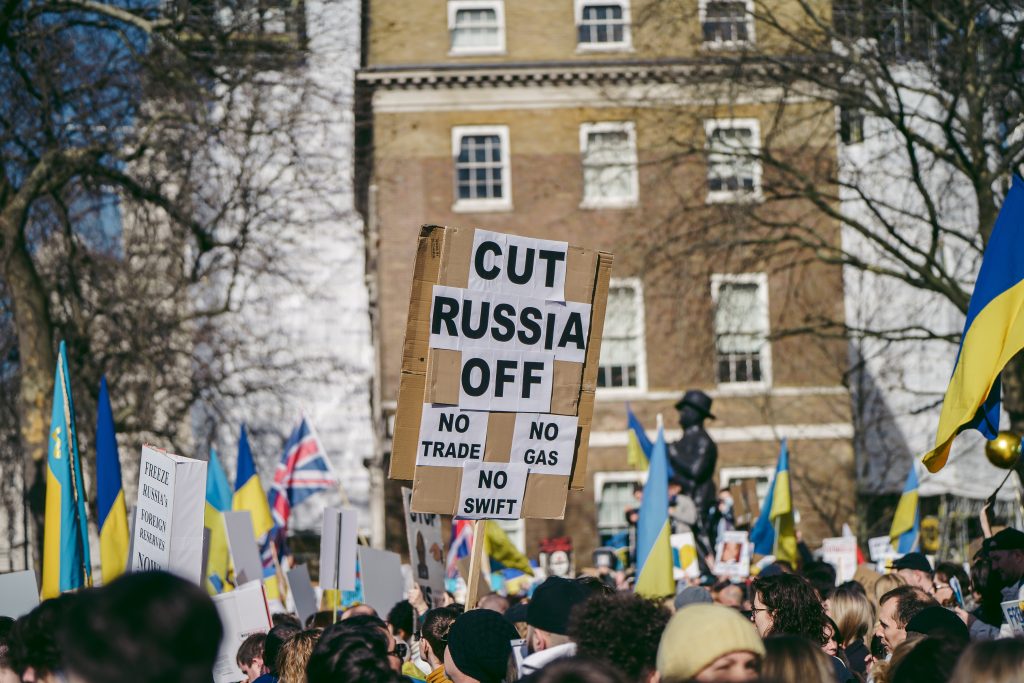
Sanctions and the Economics of War
“The situation with sanctions and the impact is really worth understanding,” Dominic continues. “Russia’s oil and fuel exports are the most crucial portion of its federal budget. Energy exports make up about a third of Russia’s GDP and directly fund its military operations in Ukraine.”
He notes that Ukrainian drone and missile strikes on Russian refineries have weakened Moscow’s oil industry. “This has been compounded by Western sanctions and tariffs imposed by countries against Russian crude, applying pressure on Russia economically and politically. But Russia is adapting. It’s rerouting exports and selling discounted energy to countries like India and China. These sales help Russia offset the losses caused by Western restrictions.”
While sanctions have not yet halted Russia’s war machine, Dominic emphasises their long-term importance. “The European Union and America are applying these sanctions, and that’s the right thing, even if there are price fluctuations in the market. There are plenty of other oil supplies that will even things out in the long run.”
Innovation and Hybrid Warfare
Katerina shifts the conversation towards technology and innovation. “Hybrid warfare isn’t only drones and missiles,” she observes. “It’s about who adapts fastest.”
“In summary, the short answer is yes,” Dominic replies. “Europe is massively overregulated, and we must do everything we possibly can to support innovation and the business sector to prepare Europe and support Ukraine with the ongoing attacks.”
He details how Russia’s hybrid attacks are expanding across Europe. “We see sabotage cases, arson cases, spying cases across Poland, the UK, Germany, Norway, and Sweden. I see these issues personally every single month. They’re real, and they’re directly attributable to Russia’s activities, its criminal networks, and its state-sponsored groups.”
Despite significant progress, Europe must remain vigilant. “They’ve cut Russian gas supplies from about 45 percent of imports down to about 15 percent within two years, but there are still countries buying Russian energy. That needs to stop because it’s funding Russia’s illegal war in Ukraine.”
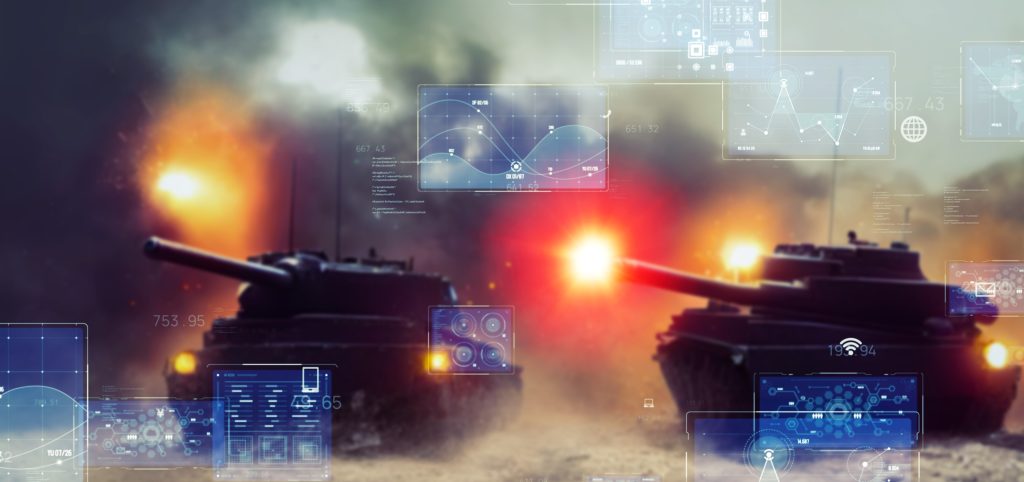
Defence, Deterrence, and the Future of Europe
“Ukraine needs to lock in a multi-year, guaranteed, and reliable supply of Patriot missiles, interceptors, counter-UAV layers, and mobile transformers,” Dominic explains. “Europe has talked about the drone wall, but NATO and the EU need to treat ground-based air defence as a continental programme with common specifications and joint procurement.”
He highlights the importance of infrastructure protection. “When someone attacks an energy station, those transformers we drive past take about five years to replace. We need to look at our supply chains, spare parts, and redundancies across Europe and Ukraine to make sure we have the resilience needed.”
Dominic warns that hybrid threats will continue to target elections and democratic processes. “This is a live range,” he says. “We’re going to see financing plans, deepfakes, and Russian-supported talking points being amplified by politicians who may not even realise they’re spreading them.”
Disinformation and the Digital Battlefield
“The cultural war that you referred to isn’t just one issue,” Dominic explains. “It’s a rolling contest over identity, over ethnicity, over religion, over gender, sexuality, migration, and even historical memory. States and movements weaponise these topics because they mobilise cheaply, polarise fast, and fracture coalitions.”
He outlines three ways disinformation campaigns exploit technology. “The cost of producing fake content has collapsed, making lies cheap and fast to distribute. These influence operations are personalised at scale, targeting communities with specific grievances. And most dangerously, the fog of misinformation teaches the public that nothing is real. That suppresses voter turnout and weakens democracy.”
Dominic urges leaders to communicate clearly and transparently. “Western willpower is divided, confused, and exhausted because of competing narratives. Politicians and business leaders cannot stay silent. They need to be coherent, fact-based, and aware of how their words shape the information environment.”
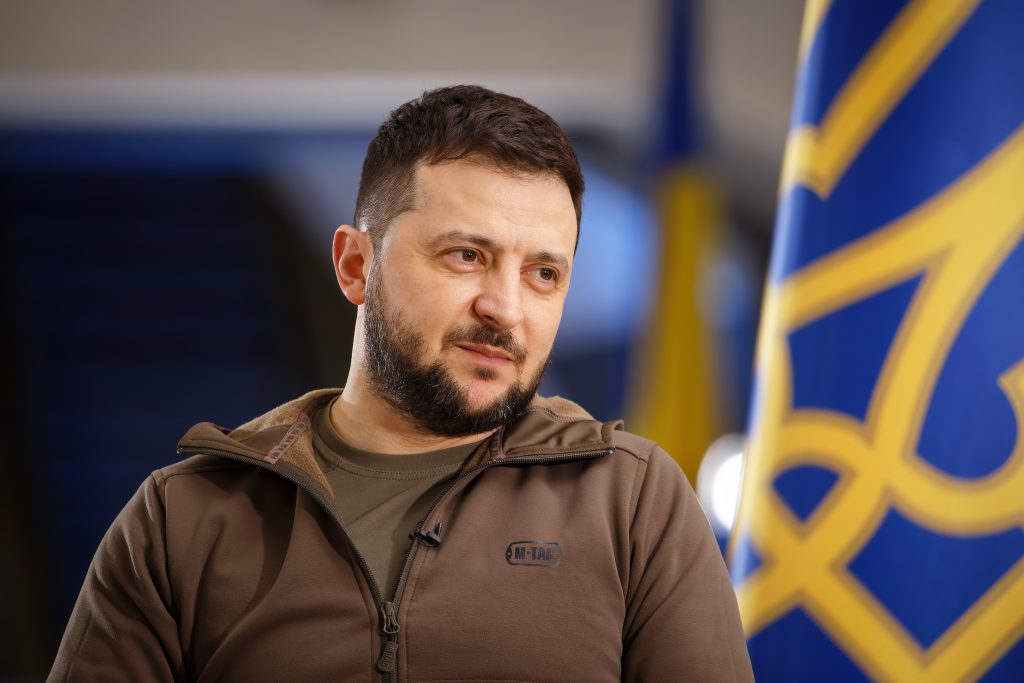
Lessons for Business and Leadership
Katerina and Dominic draw direct parallels between Ukraine’s resilience and the private sector’s need for preparedness. Dominic points to the 2023 cyber attack on Jaguar Land Rover that halted production for five weeks. “Ask yourself,” he says, “would your government step in with 1.5 billion pounds to save your company if that happened to you? Probably not.”
He underscores the importance of holistic security. “Companies often focus on information security, but they neglect physical and personnel security. How are you screening, onboarding, and supporting your staff? Most data breaches aren’t technical failures. They’re human.”
Reflecting on leadership during crisis, Dominic draws lessons from Ukrainian businesses. “One thing they’ve all learned is they have to be honest with their employees. They have to be transparent about strengths and weaknesses. Employees know where their managers fall short, so it’s better to be open. Transparency builds unity, and unity builds strength.”
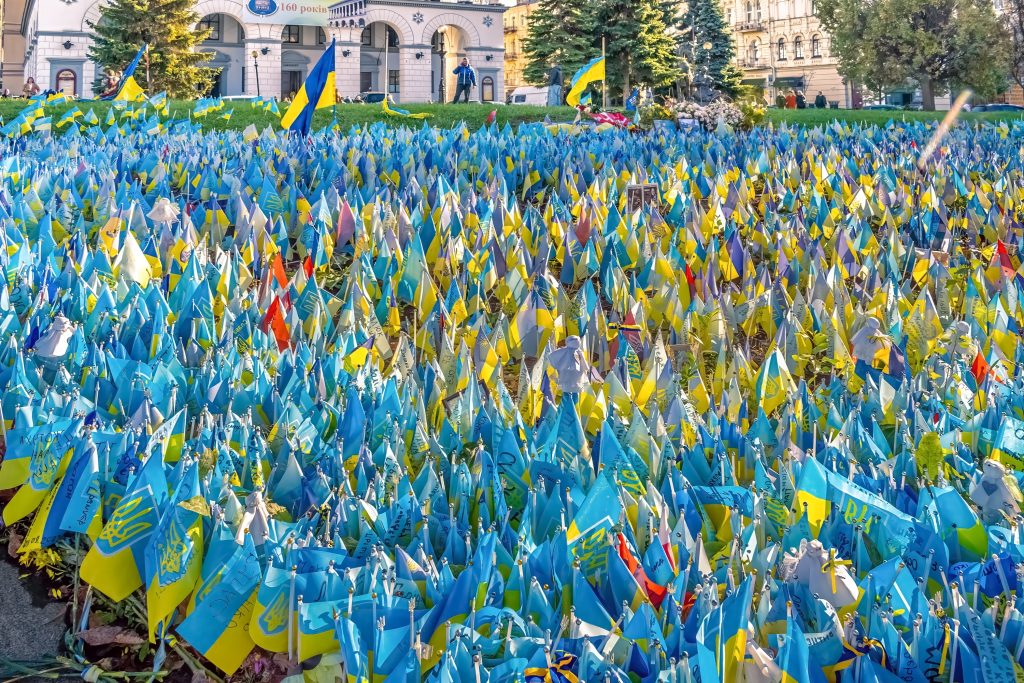
A Question for the Future
As the episode concludes, Dominic leaves listeners with a question that captures the essence of the discussion:
“If you look back in six months’ time at one thing you could have done better today to prepare for what is a really volatile and unstable environment, what is that one thing? And why haven’t you done more on it?”
Ukraine’s experience is a stark reminder that resilience is not just a national virtue but a leadership necessity. Whether facing missiles or misinformation, the defence of democracy depends on clarity, preparedness, and the courage to act before it is too late.

